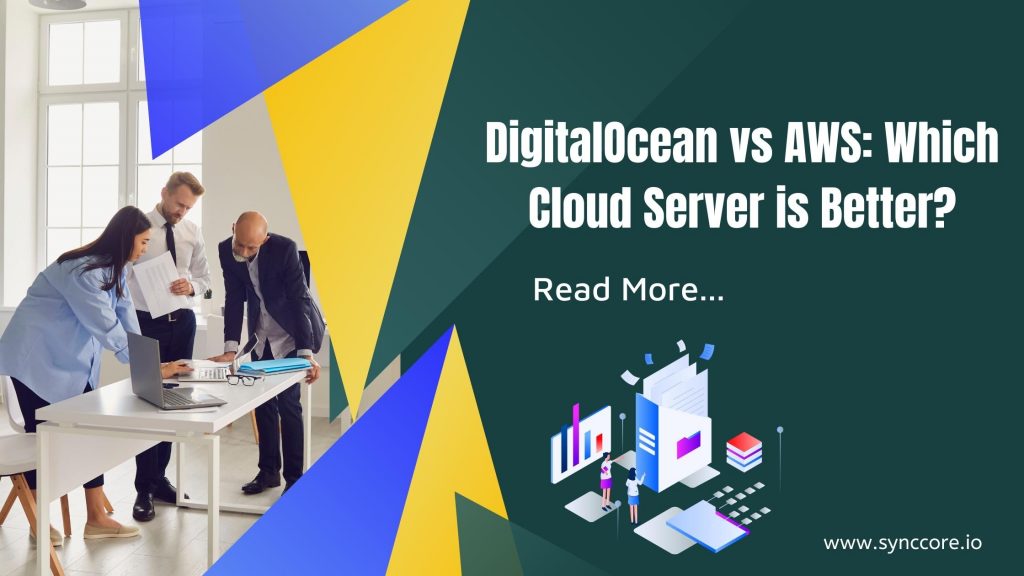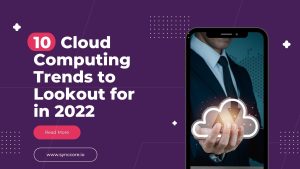DigitalOcean Vs AWS: To meet the demands of building, deploying, and managing applications, business organisations require high-performance and robust servers and databases. Effective and dependable cloud services are critical for meeting all networking, storage, computing, and customer service requirements.
When it comes to cloud hosting options, DigitalOcean and Google Cloud are both well-known and trustworthy companies. Both are powerful hosting platforms with numerous opportunities and resources for developers and site owners, making choosing one over the other difficult. Evaluating the distinguishing features and benefits of DigitalOcean vs. Google Cloud will assist you in making the best decision.
Keep reading to get a sense of the full range of services provided by these hosting platforms, so you can make an informed decision based on your specific needs and budget.
Table of Contents
DigitalOcean Vs AWS

What is DigitalOcean?
DigitalOcean is a one-of-a-kind cloud hosting provider that provides cloud computing services to help businesses scale by deploying DigitalOcean apps that run parallel across multiple cloud servers without affecting performance.
It provides software developers with an IaaS (infrastructure as a service) platform, and DigitalOcean is extremely popular among open source developers. Developers must launch a private virtual machine instance known as a droplet in order to deploy their IaaS environments.
Developers must choose the size of the droplet, the Linux operating system it will use, and the data centre and geographical region in which it will run.
In terms of web-facing computers, DigitalOcean was the world’s third largest hosting company in January 2018. The New York-based hosting company has data centres in almost every corner of the globe, allowing it to provide seamless cloud services globally.
The cloud infrastructure provider also hosts a month-long open-source software celebration called Hacktoberfest (1st to 31st October). Twilio and Github are collaborating on this event.
Digitalocean Pricing
DigitalOcean’s pricing is based on the hour, and there is no price difference for long-term commitments. This means that the hourly rate is the same as the monthly rate.
For example, an entry-level virtual machine, 1GB RAM, 1 vCPU, 1 TB bandwidth, and a 25GB SSD disc will cost you $5 per month. Even if you use less than a 25GB SSD or a 1TB network, the monthly fee remains the same.
You will have to pay for additional storage and bandwidth if you use more than 25GB or 1 TB.
DigitalOcean Key Features
- DNS management
- Global image transfer
- Solid-state drives (SSD)
- 99.99% uptime SLA
- Easily scaling through versatile API
- Team accounts
- Simple control panel
- Private networking
- 55 second provisioning
- Powerful Hex Core machines
- KVM virtualization
- Multiple data centre locations
- Floating IPs
- Simple and easy to use control panel
- Tier-1 bandwidth
DigitalOcean Advantages
- Data transfer costs are low, and the price is the same across all bandwidth volumes and regions.
- Storage and Virtual Machines are guaranteed to be up and running at 99.99 percent of the time.
- The UX and UI are clean, and the management panel is simple to use.
- In less than a minute, a new Droplet can be deployed.
DigitalOcean Disadvantages
- Can be overpowering for apprentices.
- Worker arrangement requires significant investment.
What is Google Cloud?
Google Cloud, also known as Google Cloud Platform (GCP), is a leading provider of computing resources for developing, deploying, and managing Web applications. Despite the fact that its cloud infrastructure hosts apps such as Google Workplace (formerly known as G Suite and before that as Google Apps), Google Cloud is primarily a service for developing and maintaining original apps. From its data centre facilities, the apps can then be published via the Web.
GCP’s suite of cloud computing services is provided by Google LLC and runs on the same infrastructure that Google uses internally for its end-user products such as YouTube, file storage, Gmail, and Google Search. GCP provides a wide range of modular cloud services, including data storage, computing, machine learning, and data analytics, in addition to a set of management tools.
GCP provides environments for serverless computing, infrastructure as a service (IaaS), and platform as a service (PaaS).
Google Cloud Pricing
Google Cloud Platform provides both free and paid pricing plans. Furthermore, new customers can receive up to $300 in free credits to run, test, and deploy their workloads. Customers, both new and existing, can use more than 20 products for free, subject to monthly usage limits.
Google Cloud has a pay-as-you-go pricing model, which means you only pay for the services you use. There are no up-front or cancellation fees.
Google Cloud Advantages
- Google Cloud services are reasonably priced, and different packages are available based on specific app requirements.
- It is extremely fast in operation and boasts of efficient performance.
- Ensures the safety and security of the data of users.
- It operates on a private network, allowing it to completely control its operation and provide high-quality performance.
Google Cloud Disadvantages
- Even though Google Cloud DNS is still slower than CloudFlare for DNS resolution, we use the latter.
- There is no free support (as far as I know). However, because Google Cloud has extensive documentation, we have had no problems implementing any features thus far.
Conclusion
DigitalOcean and Google Cloud Platform, both cloud services, offer data storage, efficient and reliable application operation, monitoring, and maintenance.
In general, Digital Ocean is less expensive, easier to use, and best suited for high bandwidth applications. Google Cloud, on the other hand, has a broader geographical coverage, a more diverse set of features, and is ideal for large enterprise applications.
Cloud computing has caused a revolution in the IT industry. It has become a go-to factor for all companies, large and small, for application implementation and hosting. According to a Gartner Survey Report, the public cloud market is expected to reach $411 billion by 2020.
Our Recommendation
The needs and understanding of the service’s features and pricing will determine which option is best for your company.
For businesses, selecting the right cloud services is critical. In today’s Cloud strategy, SyncCore provides a hybrid solution, PaaS, and a variety of other essential capabilities. Many businesses have increased their revenue by migrating to SyncCore Cloud.
SyncCore is a far better alternative to GCP, AWS and Azure. If you require cloud services, please contact us at [email protected] or visit our website at www.synccore.io.
Read More:



